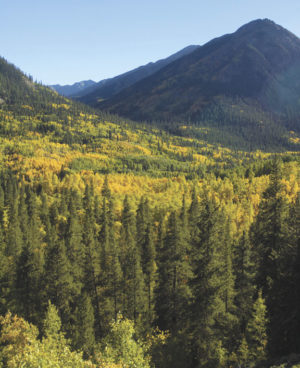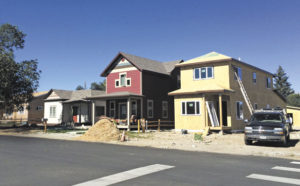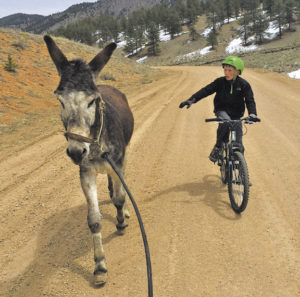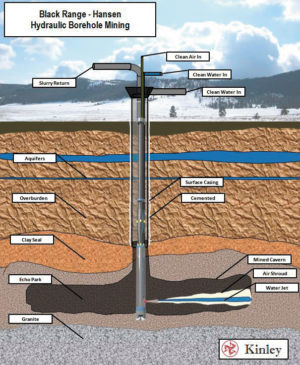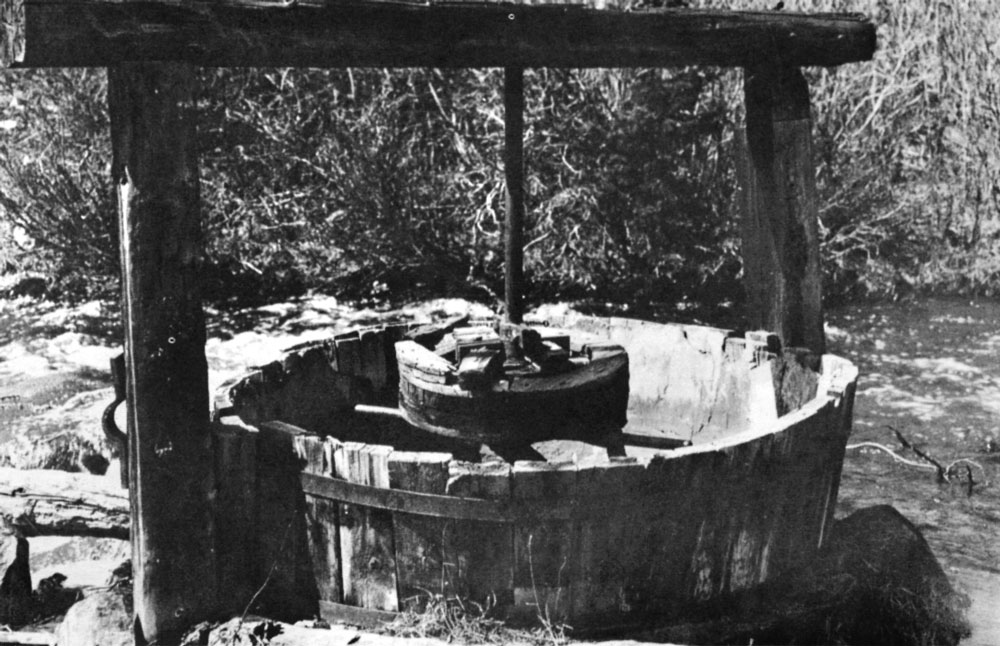
By Virginia McConnell Simmons
Using native materials, early-day miners constructed arrastras at several remote, streamside locations in Colorado. First introduced to the New World by Spaniards, arrastras pulverized ore while a burro or horse dragged a grinding stone around and around over an existing large rock. Surviving evidence may be a very flat, wide rock with a square hole that once held a central, vertical post, and a carved groove about five-to-six inches deep on the circumference to catch amalgam. Central Colorado’s well-known sites are two west of Alma, Arrastra Gulch near Great Sand Dunes and Fourmile Creek northwest of Buena Vista. This arrastra still had a windlass when photographed on Mosquito Creek in 1920.
[InContentAdTwo]


